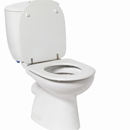 The average person, with a healthy bladder can sleep at least 6 to 8 hours without having to get up to go to the bathroom. Certain health conditions however can compromise a person’s bladder health and result in frequent night time urination, otherwise referred to as nocturia. Night time urination not only disrupts the sleep cycle and reduces quality of sleep; a study conducted at the New England Research Institute, found that it may also increase your risk for death. It is therefore vitally important to identify the cause, and find an appropriate treatment for this disorder. Below are seven possible causes of frequent night time urination:
The average person, with a healthy bladder can sleep at least 6 to 8 hours without having to get up to go to the bathroom. Certain health conditions however can compromise a person’s bladder health and result in frequent night time urination, otherwise referred to as nocturia. Night time urination not only disrupts the sleep cycle and reduces quality of sleep; a study conducted at the New England Research Institute, found that it may also increase your risk for death. It is therefore vitally important to identify the cause, and find an appropriate treatment for this disorder. Below are seven possible causes of frequent night time urination:
What Could Be Causing Bathroom Emergencies
1. Urinary Infections
Advertisement
The most common cause of multiple trips to the bathroom at night is urinary tract infections (UTI). An UTI is caused by germs and it can affect any part of the urinary tract, including the bladder, kidneys, and urethra. Although they are more common in women, men can experience them as well. If you also experience frequent day time urination, and/or the night time urination is newly developed, and/or it is accompanied by additional symptoms such as cloudy urine, low fever, pain during urination, burning during urination, or a sense of emergency when feelings of a full bladder appear, you most likely have a UTI and you should seek immediate treatment from your medical practitioner.
2. Overactive Bladder Syndrome
This is a common disorder that results from sudden, involuntary contraction of the muscles in the walls of the bladder. An overactive bladder will not only cause frequent night time urination, it will also include frequent daytime urination, a sensation of urinary emergency, and sometimes leaking urine (urinary incontinence) will occur before you get to the toilet. Luckily, this is not an incurable disorder and treatment with bladder training techniques is often all that is required to restore bladder health.
Men who experience chronic, frequent, emergency bathroom trips at night may want to have their prostates checked, because it is a classic sign of an enlarged prostate, otherwise referred to as benign prostatic hypertrophy (BPH). This is quite common amongst men, especially as they age, and additional symptoms may include: dribbling at the end of urination, incomplete emptying of bladder, painful urination, inability to urinate, slow urination and/or sudden, emergency urges to urinate.
4. Vaginitis
Vaginitis is a common disorder that is causes by bacteria, viruses, yeast and other such parasites. It may also be caused by sexually transmitted infections, allergens, poor hygiene and chemicals found in feminine care products. In addition to frequent night time urination, common symptoms may include: irritated or itchy genitals, inflammation of the genitals, foul vaginal odour, unusual vaginal discharge and discomfort or burning during urination. If you are experiencing any of these additional symptoms it is vital that you seek out an appropriate treatment from your doctor right away.
5. Interstitial Cystitis (IC)
This is an agitating and painful condition that results in a burning sensation in the bladder and it often results in many emergency trips to the washroom. Unfortunately, scientists have not been unable to figure out the exact cause of interstitial cystitis, nor have they found a cure. If you are diagnosed with IC, treatment recommendations may include: identifying and eliminating food allergens, avoiding spicy food and alcohol, and in some cases, prescription pain medications and drugs that promote bladder health by building up the lining of the bladder, will be prescribed.
6. Certain Medications
Advertisement
The following types of medications may all cause frequent night time urination as a side-effect: diuretics, demeclocycline, lithium, methoxyflurane, phenytoin, and propoxyphene.
7. Lifestyle Habits
Sometimes nocturia isn’t caused by a medical condition and people with perfect bladder health can experience it. These cases are usually caused by simply drinking too many fluids before bedtime; and both alcohol and caffeinated beverages are considered especially problematic. In other cases, it is simply a habit that has developed, and ignoring the sensation can overtime help to break the habit.
